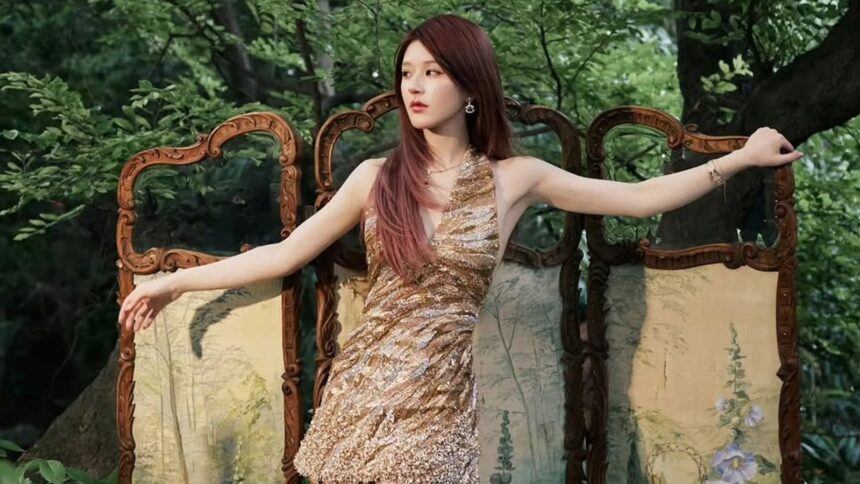At a recent public appearance, Chinese actor and singer Rosy Zhao stepped out in a shimmering gold halter-neck dress from Rahul Mishra’s Spring 2025 couture collection, titled ‘Surreal Space’.
The gown was styled by Zhao’s longtime fashion collaborator and stylist, Min Rui. “Rosy looks spectacular in this dress she wore fresh off the runway after our Couture Spring 25 show in Paris,” Rahul Mishra told exclusively.
“The surface is adorned with resham thread embroidery, glass bugle beads, freshwater pearls, zardozi, naqshi and dabka work. It has taken approximately over 900 human hours to realise the look at the Rahul Mishra atelier.”
The designer added warmly, “It is always a great pleasure to dress . The stylist Min Rui has been our long-time collaborator and a dear friend of the brand, and we’ve created beautiful moments in the past with him.”
Her appearance comes a week after the actor was named a global ambassador for Charlotte Tilbury.
Just months ago, concern for Zhao surged when she was suddenly hospitalised on December 27. Images of her in a wheelchair—frail, unsteady, and unable to feed herself—began circulating online. The actress’s social media account was temporarily locked, and speculation began to mount. Many believed she was suffering from aphasia, a condition that impairs one’s ability to speak and understand language.
But it was what came after that gave the situation its emotional weight.
On December 31, an individual claiming to be a close friend of Zhao’s shared disturbing allegations about abuse the actress had suffered in 2019, when she was still trying to find her footing in Beijing’s competitive acting scene. According to The South China Morning Post, Zhao had been verbally attacked and physically assaulted by a company boss, who berated her for being “fat” and “untalented” after failed auditions. The incident allegedly took place in a restroom in the middle of the night.
On January 1, Zhao broke her silence with a deeply personal statement shared online. In it, she recounted painful memories from childhood and adulthood.
“Since childhood, I’ve been called useless and labelled a ‘pretty vase’… I thought I deserved it,” she wrote. “When I grew up, I was beaten again. I thought failing auditions was my fault. So I kept quiet. I just wanted to run away.”
“I’ve never spoken about this illness before,” she added. “I don’t want to turn being unwell into what’s now called ‘hype’.”
It was a rare, vulnerable admission—one that sparked support and reflection across China and beyond.








